Problem-Solving Skills Normal Numbers Worksheets for Ages 4-5
6 filtered results
-
From - To
Introduce your child to the world of numbers with our engaging Problem-Solving Skills Normal Numbers Worksheets designed especially for ages 4-5. These thoughtfully crafted worksheets help young learners develop critical problem-solving abilities while familiarizing them with numbers. Each activity incorporates fun and educational elements, providing a supportive and stimulating environment for your child’s early math journey. Our resources not only aim to build foundational mathematical skills but also encourage logical thinking and foster a love for learning. Set your child on a path to success with our expertly designed worksheets that make numbers exciting and accessible for young minds.
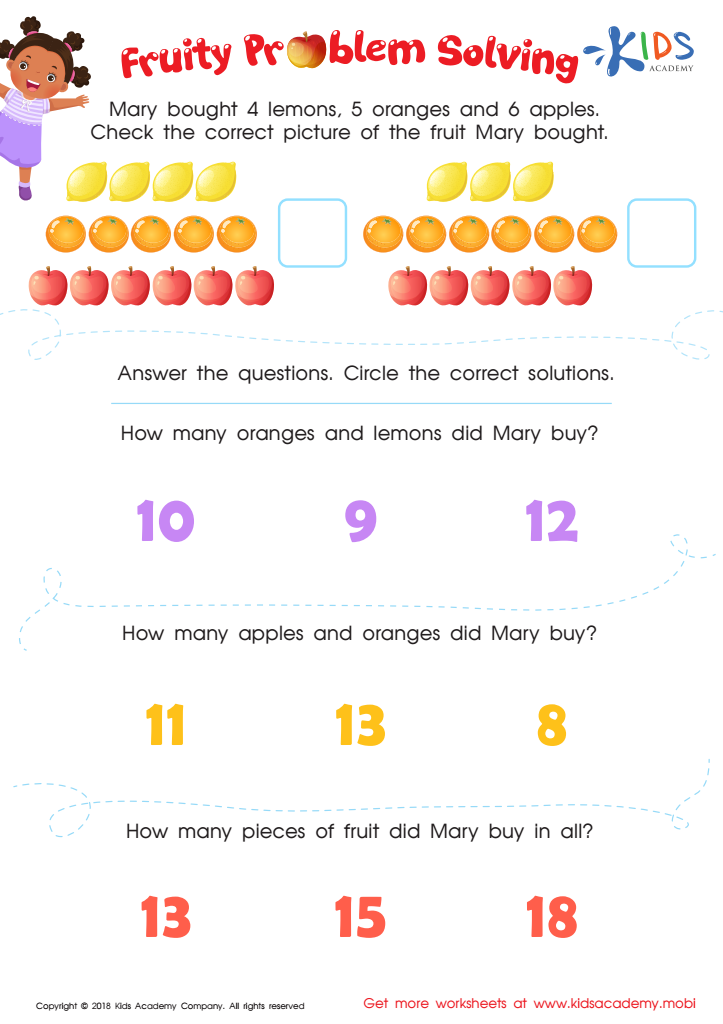

Fruity Problem Solving Worksheet
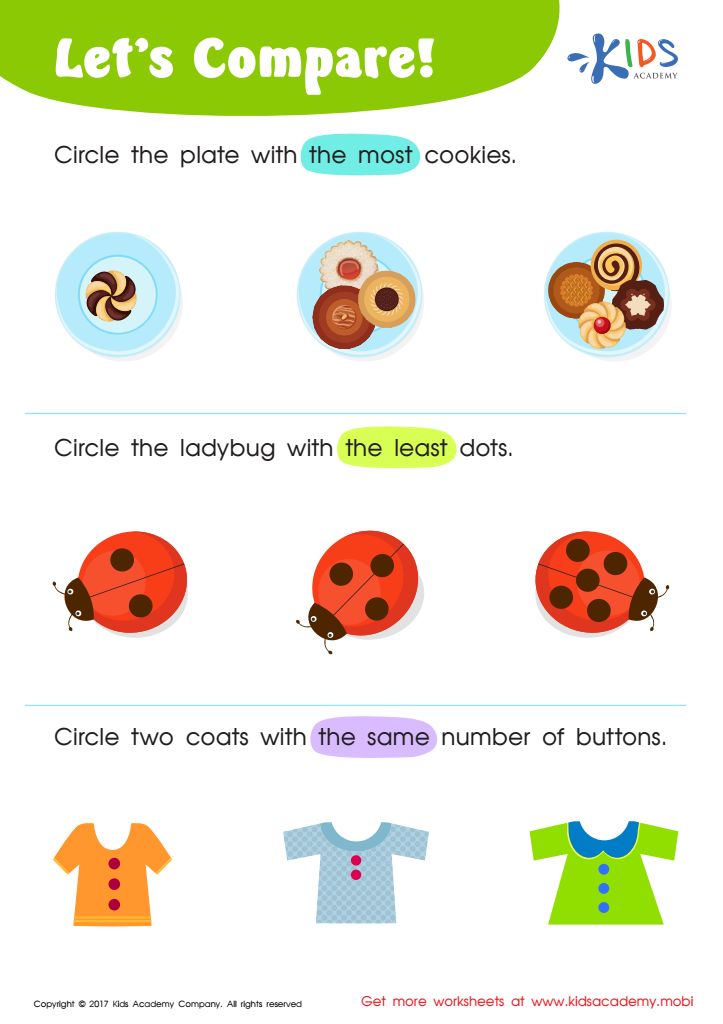

Matching: Classifying Toys by Size Worksheet
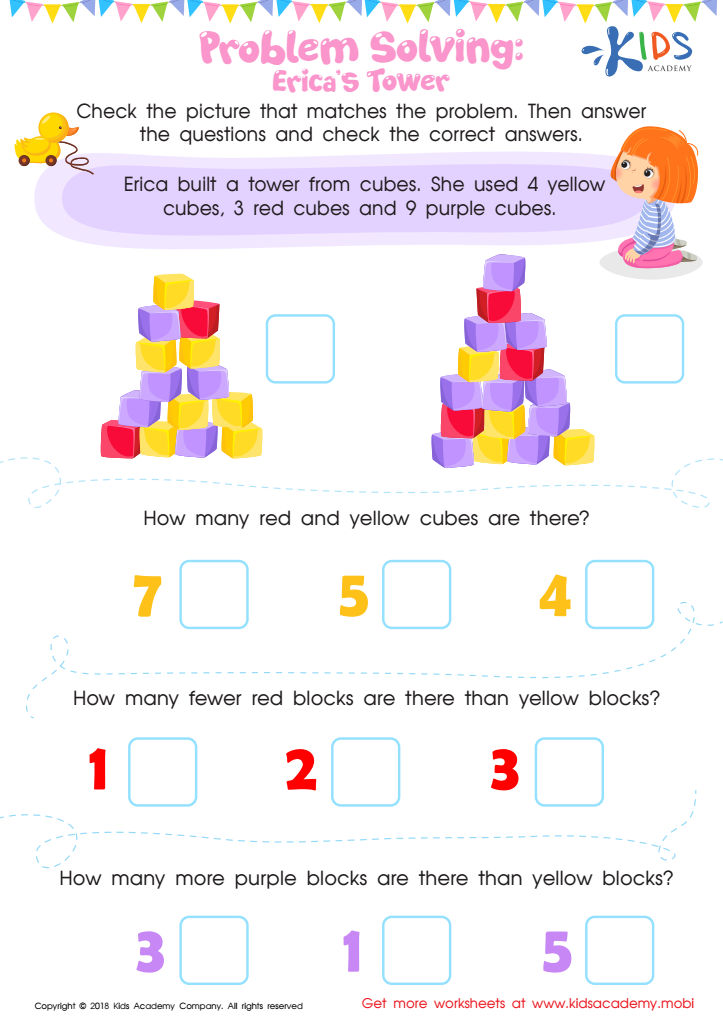

Problem Solving: Erica's Tower Worksheet
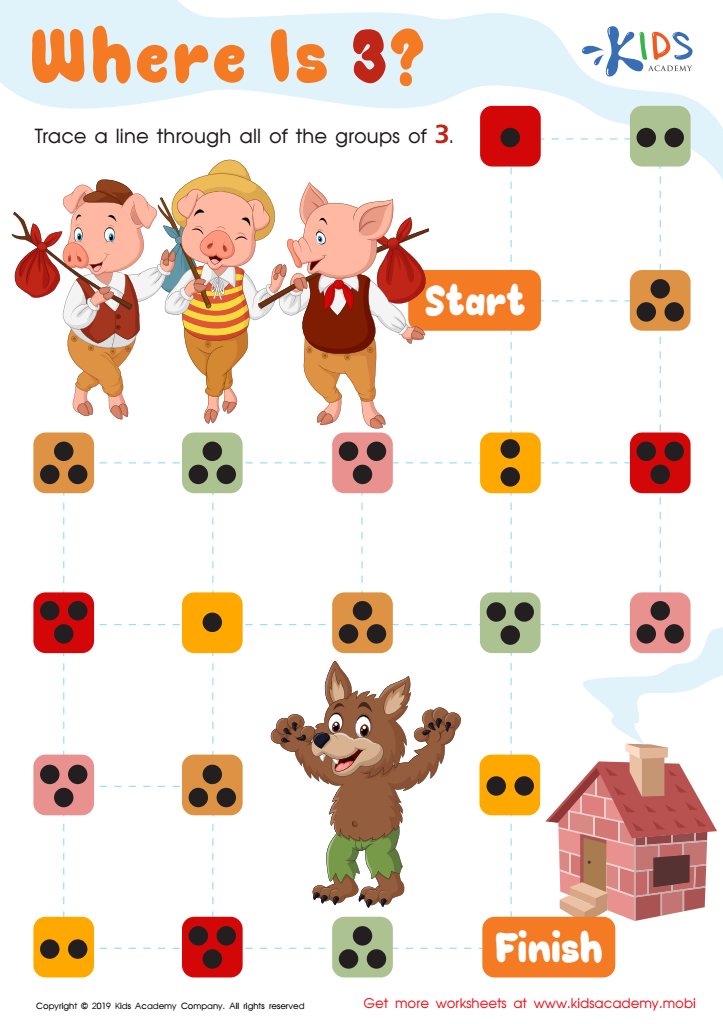

Where Is 3? Worksheet


Solve the Problem: Trick–or–treating Worksheet
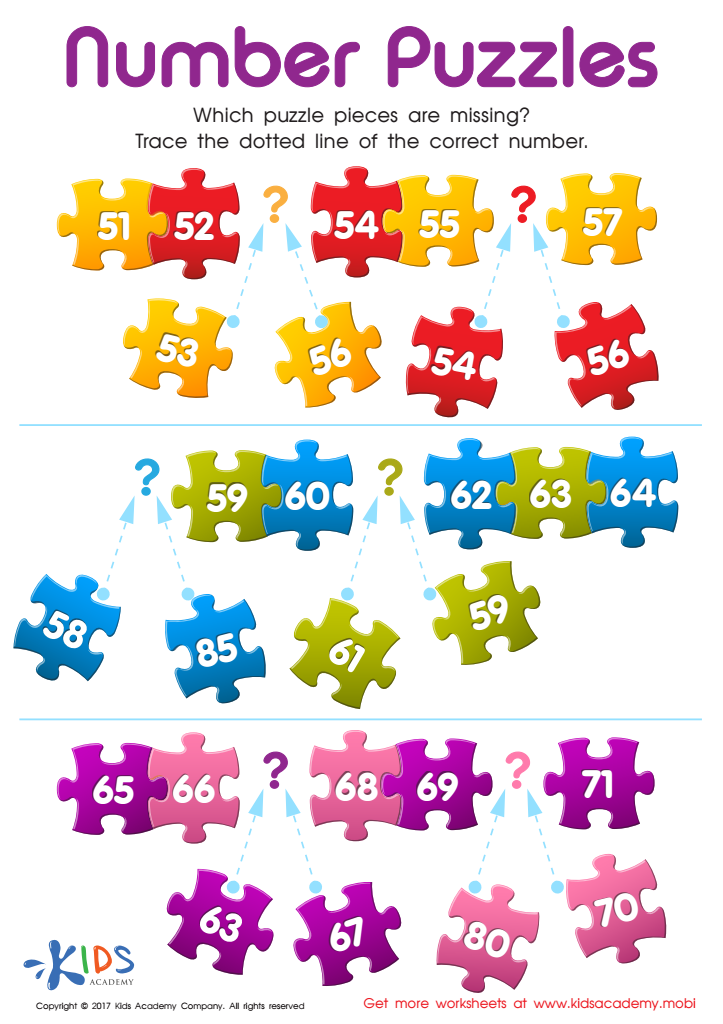

Number Puzzles Worksheet
Parents and teachers should care about developing problem-solving skills and familiarity with numbers in young children (ages 4-5) because these abilities are foundational to their cognitive and academic growth. At this early stage, children's brains are tremendously adaptable and receptive to new information, making it an ideal time to strengthen neural pathways related to logical thinking and numerical understanding.
Introducing basic problem-solving and numerical concepts helps in multiple ways. Firstly, it fosters critical thinking skills, enabling children to approach various situations analytically and creatively. For instance, learning how to count and recognize numbers helps them understand patterns, which can be applied to more complex areas such as math, science, and even everyday tasks.
Secondly, proficiency in numbers and problem-solving increases a child's confidence. When young children feel competent in these foundation skills, they are more likely to participate eagerly in future educational activities.
Lastly, these skills are integral in social and emotional development. Working on puzzles or simple math problems can teach patience, persistence, and the value of effort and collaboration when done in group settings.
Therefore, nurturing problem-solving abilities and a good grasp of numbers during early childhood sets the stage for academic success and well-rounded development, equipping children with essential tools for lifelong learning.
 Assign to My Students
Assign to My Students
















